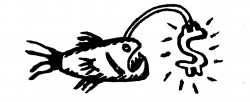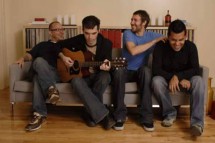Years of sampledelica, instant remixes, amorphous albums, and mischief have obscured how Beck was seen at the outset of his career: He wasn’t viewed as a mere prankster, but a songwriter. Far from dooming him as a novelty, “Loser”—the deadpan 1993 single that turned him into a star—saddled Beck with the “voice of a generation” tag, thanks to his laconic, sardonic drawl embodying the slack of Generation X. To solidify his status, his songs were covered—and given a tacit nod of approval—by artists with stature. Tom Petty recorded the 1994 track “Asshole” for his soundtrack to Ed Burns’ 1996 rom-com She’s The One (in retrospect, a nifty time capsule of post-alt haziness); that same year Johnny Cash sang “Rowboat” on Unchained, his second collaboration with Rick Rubin. Both were strong indications of how Beck was viewed as part of a folk tradition that stretched back into the old, weird America.
But Beck soon shook off all the expectations, placing all his chips on the Dust Brothers’ sonic collages for 1996’s Odelay, his first major-label album after 1994’s Mellow Gold and first to be made with a wide audience in mind. Odelay is still the only one where all his contradictions are seamlessly woven together, capturing his myriad influences as well as the conflicting cultural tides of the ’90s, a time when this folk-punk terrorist rocked the hip-hop with the pantyhose and didn’t seem like a freak. Racking up a couple of hits and a Grammy, Odelay crystallized the popular perception of Beck—an ironist who is happy to tweak the collective consciousness, a one-man Beastie Boys. He never quite abandoned gravity; his rush back to folk for 1998’s Mutations established a pattern that continued when he tempered the millennial freak party Midnight Vultures with the mournful breakup record Sea Change.
Ever since that 2002 release—a proudly classicist record in its construction and intent, one that could have been passed off as a ’70s artifact—Beck has seemed bored with the very idea of the album, or even pop music.






